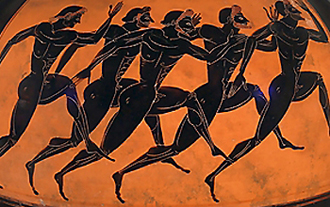CHOOSING A MAJOR: LET EVIDENCE HELP
The Aspen Institute in co-operation with The Atlantic has taken a hard look at the undergraduate major in Business. Their report, “Why America’s Business Majors Are in Desperate Need of a Liberal Arts Education” in the Atlantic for June 2016 should be required reading for every entering college student, and every high school student trying to figure out how to choose a college – also for every employer trying to develop an effective workforce. But that will not happen unless college faculty and administrators put a copy of the article in the hands of these groups.
Here’s what amazes me most about the lemming-rush to business majors. Running an effective organization, whether for-profit or not-for-profit, requires the use of evidence in making decisions. It is top priority in making decisions that effect the balance sheet, success, survival. So why is a similar insistence on evidence not present when decisions are being made about majoring in business?
Is the evidence so hard to find?
Some of the most telling evidence available can be found easily enough in a paper by Jeffrey Stedley and Michael Brady called “Majors Matter: Differential Performance ona test of general collegenoutcomes “. As Roger Benjamin has pointed out to me, this paper shows that “by the end of senior year in college, there are significant differences in student performance by major. Those studying the natural and social sciences, humanities, and languages scored the highest. Those majoring in business and education scored lowest. These differences persisted after controlling for various demographics ...”
Why would that be the case? The likely answer comes, I believe, when one looks at the expectations in different types of majors. Arts and science majors typically expect students will ask important questions and find arguments and evidence to answer them. They require a lot of writing, with (one hopes!) prompt and detailed critiques by a faculty member. Such majors often build up to a serious research project in the senior year. Those of us who have taught this way know how important such projects are in a truly robust education in college and for personal achievement and contributions to society after college. Others can catch on to the idea by reading Jim Grossman and Tony Grafton’s article “Habits of Mind: Why College Students Who Do Serious Historical Research Become Independent Analytical Thinkers“ in American Scholar 84.2 Winter 2015. They conclude: “When a student does research in this way . . . she’s doing what students of the humanities have always done: building a self and a soul and a mind that she can take with her wherever she goes, and that will make her an independent, analytical thinker and a reflective, self-critical person.”
But again, people who need this insight won’t get it, unless someone puts such articles in their hands. So, Aux armes, citoyens, or at least au Xerox.

 RSS Feed
RSS Feed
